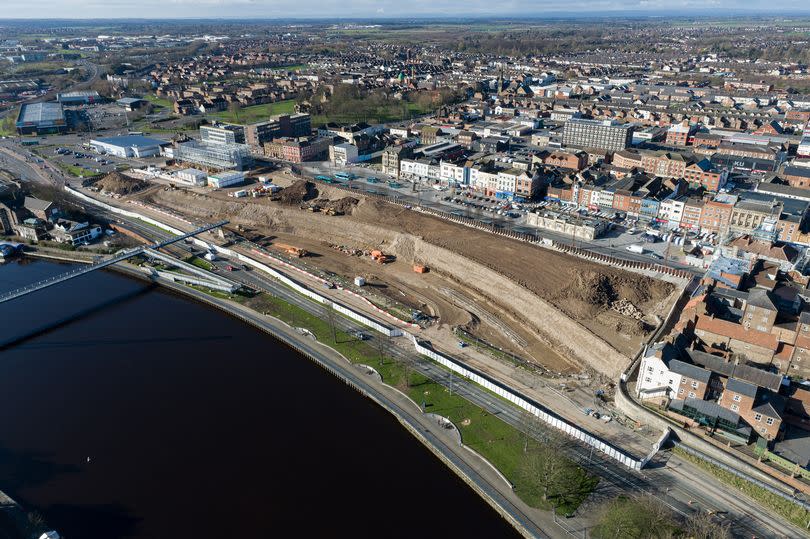'Difficult decisions' needed to remove or change play facilities as council feels financial pinch

Some play facilities will have to be "removed or repurposed" to save money as a council continues to feel the financial squeeze.
Councillors have said Stockton Council cannot maintain its play areas with tight funding, had "equipment with no plan for the future" and it was "not sustainable to keep all existing play sites open". They also raised concerns about a landmark waterfront scheme for an urban park and "transformational public space".
They said the major waterfront scheme could add to financial worries which might hit the borough's play areas. They have called for more detail on its long-term maintenance and how it would affect other play areas.
READ MORE: Casino firm loses appeal bid to extend opening hours despite hired Met cop's 'covert observations'
READ MORE: Popular fashion chain and luxury cosmetics brand could be moving into Teesside Park's former H&M
They have recommended the authority draws up proposals "for the removal/repurposing of sites with the aim of reducing pressure on the overall parks budget" and publishes an outdoor play strategy. And they want the council to know how much it will cost to revive or remove play areas which need urgent attention.
A committee which looked into Stockton's 49 public play areas and 20 informal sport facilities, mostly owned and managed by the council, have found there was a "growing inequality of provision" across the borough since the last significant investment in 2008. It says there is a £60,000 budget shortfall for inspection and maintenance, compared to the £83,000 spent by September last year and £92,000 anticipated costs for outstanding work.
The report from the council's crime and disorder select committee states: "If there is a desire to maintain the existing level of outdoor play provision across the Borough, a capital injection appeared necessary. Critically, the present budget is earmarked for maintenance only and is not a replacement fund – as such, the borough has a large amount of valuable play equipment with no plan for the future."
The Royal Society for the Prevention of Accidents assessed 39 of the sites and found only four were scored at least "good", nine rated at least "average". Play equipment had a worst-case life expectancy of three to eight years in 10 play spaces.
'Would further compound financial challenges'
The report says many sites had been improved with contributions from housing developers as part of planning requirements. But areas without new housing had not gained new or upgraded play facilities.
The councillors refer to the high-profile Stockton Waterfront urban park scheme, expected to open in 2026 connecting the High Street to the Tees with a large-scale play area and amphitheatre. They said there had been assurances that long-term costs would be picked up with council budgets.
However, says the report: "The committee remain concerned that, since SBC was not in a position to maintain what it already had (with local authority funding likely to get even tighter), this would further compound financial challenges which may have potential implications for other existing provision across the borough.
"For SBC, whilst there will be an understandable reluctance to compromise much valued resources for children/young people and their families across Stockton-on-Tees, it is clearly not sustainable to keep all existing play sites open, and difficult decisions will need to be made around removing/repurposing some sites. Allied to this, longer-term thinking about the maintenance and replacement requirements of the borough’s existing and planned future offer must ensue to ensure quality, accessible, and geographically balanced provision that lasts."
The report says there should be "careful consideration" about adopting future play sites from developers. It urges the council to focus on "supporting the current portfolio as far as possible before additional spaces are agreed".
The committee recommended that the council supports existing play areas before any new ones are approved, encourages more "community ownership", with the suggestion of approaching town councils or businesses for support, and possible steps to tackle areas with little or no outdoor play.

 Yahoo News
Yahoo News 
